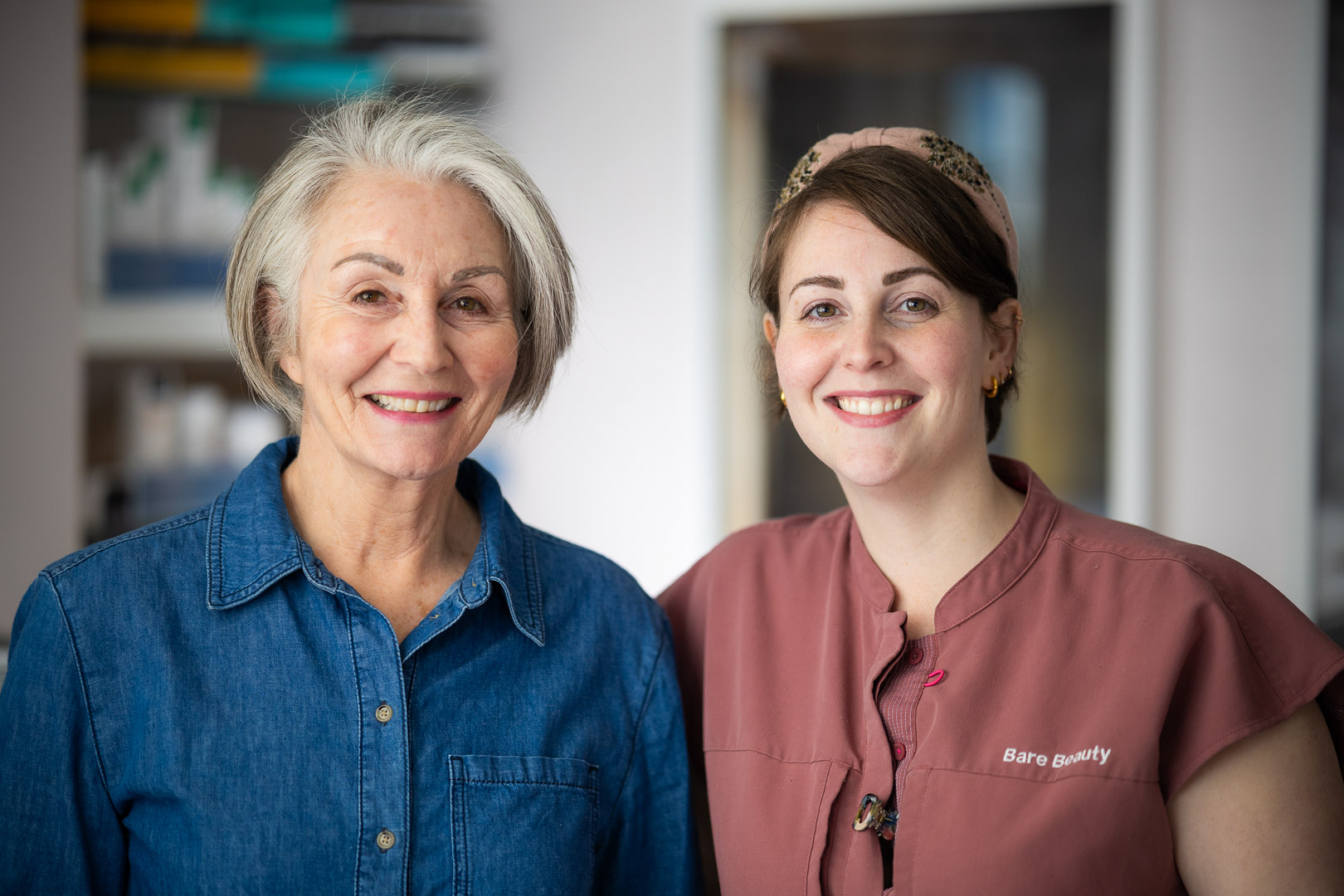
I set out this month to write about laser hair removal, but a couple of recently published newspaper and magazine articles have caught my attention. The gist of the articles highlights ongoing struggles within the aesthetic industry, particularly with underqualified practitioners causing serious side effects. On the surface, it’s easy to see why more regulation is necessary and why potential clients considering aesthetic treatments are wary
However, while I support sensible guidelines, I don’t agree that the medical profession should “hijack” our industry simply because they are medically trained. The idea that a dental hygienist could administer Botox, yet a well-trained aesthetic practitioner with years of hands-on experience might be barred, is deeply concerning. Our skills, qualifications, and focus on client safety deserve recognition and respect.
Fat Cell Memory: The Article That Sparked Discussion
One particularly fascinating article I read introduced the concept of fat cell memory, a phenomenon where fat cells “remember” their former size. This makes it more likely for us to regain weight after dieting, affecting those who use weight-loss medications like Ozempic, Wegovy, or similar drugs. There is a fascinating scary article on fat cell memory here https://bit.ly/4azWYLS
Bare Beauty’s Early Insights
At Bare Beauty, we’ve long been aware of how fat cells behave. We initially incorporated cool sculpting to help clients reduce stubborn fat deposits. Once we discovered how targeted fat dissolving injections could be, we transitioned to that approach. Find out here about this great treatment https://wearebarebeauty.com/treatment/fat-dissolving-injections/
One key reason these injections are so effective is that they destroy the targeted fat cell entirely—erasing the “memory” of its former size and preventing future fat storage in that specific area. We aren’t in the business of managing overall weight, but we are in the business of building our clients’ confidence. That means staying informed about the science behind our treatments and being transparent about what they can and can’t achieve.
We’ve also embraced micro dosing techniques—such as with anti wrinkle and fat dissolving injections—recognizing that “a little bit, more often” is far more controllable and often yields better long-term results.
Any way I’ll share the key points I took from the article on fat cells because so many of us have that extra few kilos we want to lose.
Key Points From the Article
- Weight Regain After Dieting: About 90% of people who lose weight on a diet eventually gain it back.
- Ozempic and Long-Term Use: Ozempic users are predicted to need injections for life, but emerging side effects include joint pain and an increased risk of pancreatitis.
- Fat Cell Memory: A study in Nature found that even after weight loss, fat cells remain epigenetically “programmed” to return to their original size.
- Diet Over Exercise for Weight Loss: While exercise is superb for mood and cardiovascular health, dietary changes are the real key to losing significant weight.
- Lifestyle Changes Are Crucial: Even those on weight-loss medications like Ozempic need to adopt a balanced diet and regular exercise to maintain results.
The Science Behind Fat Cell Memory
This concept of epigenetics—how our environment and lifestyle can switch certain genes on or off without altering the underlying DNA sequence — explains why many people find themselves on the yo-yo dieting rollercoaster. Once fat cells “learn” to store calories effectively, they don’t easily forget. If you want to get into the science of epigenetics this is a good starting place https://bit.ly/40N6ZC1
- Epigenetic Changes
-
- Diet and lifestyle can trigger modifications in gene expression.
- Fat cells adapt by becoming more efficient at storing fat.
- Post-Diet Phenomenon
-
- Even after significant weight loss, fat cells can retain these epigenetic changes for years.
- When life stressors or old eating habits return, the body is primed to pack the weight back on.
- The Role of Evolution
-
- Historically, storing fat was crucial for survival in times of famine.
- Modern lifestyles offer abundant high-calorie foods, fuelling weight regain.
Why Lifestyle Changes Trump Quick Fixes
Weight-loss medications like Ozempic, Wegovy, and others can be helpful tools. However, relying on them alone often leads to weight regain once treatment ends—especially because the underlying epigenetic programming in your fat cells remains unchanged.
- A Balanced Diet
-
- Focus on protein- and fibre-rich foods (lean meats, eggs, fruits like apples and berries, and green vegetables such as broccoli and spinach).
- Cut back on foods high in calories but low in nutritional value (sugary drinks, white bread, biscuits, crisps, chocolate, and many breakfast cereals).
- Regular Exercise
-
- Aerobic Workouts (walking, running, swimming, cycling) can help redirect nutrients away from fat cells and into muscle cells.
- Strength Training helps build muscle mass, increasing your metabolic rate and combatting the reduction in resting calorie expenditure.
- Managing Stress and Sleep
-
- Chronic stress and sleep deprivation can lead to poor food choices and hormonal imbalances, exacerbating weight gain.
4. Micro dosing: A Middle Ground?
- At Bare Beauty, we’ve also learned that micro dosing Wegovy may offer a balanced approach for some individuals. We haven’t got experience with Ozempic so I can’t vouch for the micro dosing approach with that but we have with the Wegovy. This strategy can mitigate side effects while still providing support for weight management. However, no medication should ever replace core lifestyle changes—such as a nutritious diet, consistent exercise, and adequate sleep—when it comes to long-term
Navigating Medical vs. Aesthetic Expertise
Back to the initial concern: Should the medical profession have the final say on who can perform aesthetic treatments? While some regulation is undeniably necessary, it’s equally critical to recognise the skills and qualifications of experienced aesthetic professionals.
- Properly Trained Practitioners
-
- Have in-depth knowledge of facial anatomy.
- Understand the nuances of working with real clients daily.
- Can provide safer, more effective treatments than someone who is simply medically qualified but lacks extensive aesthetic experience.
- Consumer Awareness
-
- Always do your due diligence when choosing an aesthetic practitioner.
- Look for certifications, experience, and client testimonial
If you’re interested in safe, proven aesthetic treatments or you simply want to chat about your goals, feel free to reach out. We’re here to provide expert guidance—without the hype. And if you’d like more insight into our stance on weight-loss injections like Wegovy, check out our previous blog posts . or contact us directly https://wearebarebeauty.com/
Signing off until next time
Harriet & Deborah





